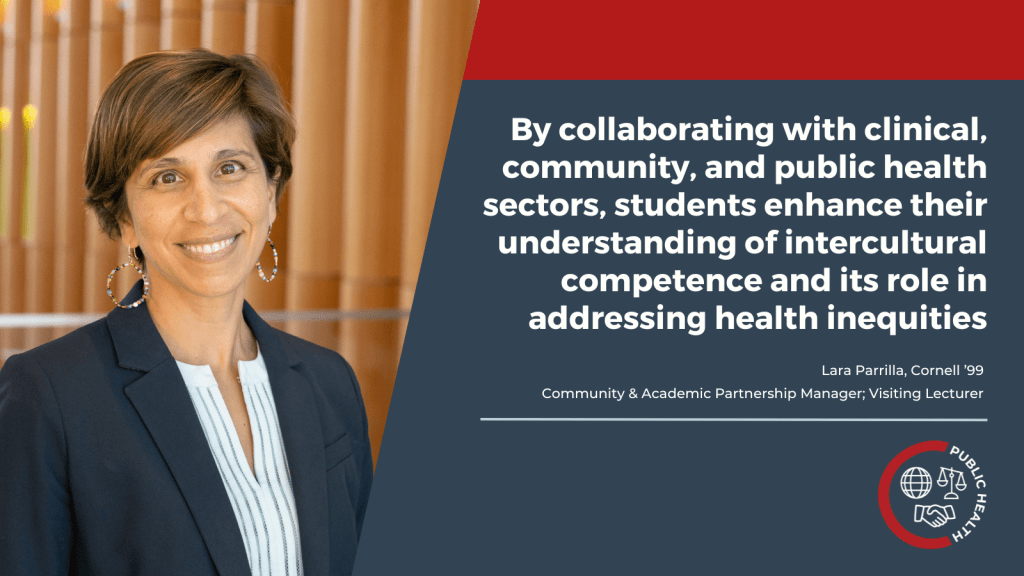Clinic-Community Partnerships
 In December 2021, a team of Cornell University MPH Program faculty were awarded a 2021-22 Engaged Research Grant from the David M. Einhorn Center for Community Engagement. The group, led by Lara Parrilla, lecturer and community and academic partnership manager, was one of two awardees this year. These grants are specifically designed to incentivize undergraduate participation in faculty and staff-led research that strengthens the wellbeing of communities, and award up to $30,000.
In December 2021, a team of Cornell University MPH Program faculty were awarded a 2021-22 Engaged Research Grant from the David M. Einhorn Center for Community Engagement. The group, led by Lara Parrilla, lecturer and community and academic partnership manager, was one of two awardees this year. These grants are specifically designed to incentivize undergraduate participation in faculty and staff-led research that strengthens the wellbeing of communities, and award up to $30,000.
“It’s an honor to be selected for this research grant,” said Parrilla. “I look forward to jumping into the important work of connecting Cornell students with the community at large.” Parrilla is joined on the project by Dr. Karla Hanson, professor of practice with the MPH Program, and Grace Marshall, research support specialist with the Department of Public & Ecosystem Health.
The grant effort, titled “Developing a Framework for Clinic-Community-Public Health Collaborations to Support Population Health and Integrative Learning,” united three local organizations— Cayuga Health Partners, Visiting Nurse Services, and Foodnet Meals on Wheels —in research to identify ways to enhance their collaboration and develop a framework for engaging students in future collaborations that support population health.

The impetus for the effort came from the widespread issue of connecting healthcare providers with the community in robust and sustainable ways. “Developing and sustaining effective and equitable clinic-community partnerships remains challenging for many communities, including Tompkins County,” says Parrilla.
In January, the team was also awarded a 2022 Community Partnership Building Grant from the Cornell Center for Health Equity. This funding enables community partners to be more meaningfully engaged in the research process by allowing more time for semi-structured interviews to understand the benefits, drawbacks, and feasibility of using cross-organizational collaboration to improve engagement, care coordination, and data sharing.
With the help of the Engaged Research and Community Partnership Building grants, Parrilla is organizing Cornell faculty, staff, and students, starting with gathering data to better understand existing engagement and care coordination strategies, and current data infrastructure capabilities of the partners. The goal is to create a framework for applying qualitative public health research methods to recommend effective clinic-community collaborations that can be tested and refined in support of other health needs in future years.
There is a mutually beneficial impact, Parrilla says. “By collaborating with clinical, community, and public health sectors, students enhance their understanding of intercultural competence and its role in addressing health inequities.” In turn, the clinic-community team benefits from actionable recommendations for system and process improvements and a roadmap for future collaboration.
“We are excited to engage Cornell students and our partners in bridging the gaps between public health, medical care, and human services,” says Parrilla. “This grant really allows us to dig into that issue and hopefully make meaningful changes in our community’s health.”
Adapted from an article by Lauren Cahoon Roberts, originally published in the Cornell College of Veterinary Medicine News, 2/18/22; updated 7/1/22.
